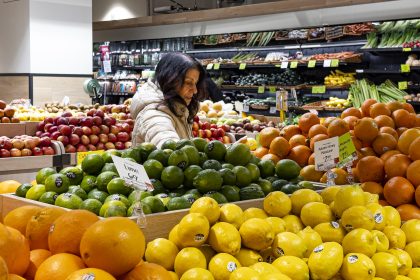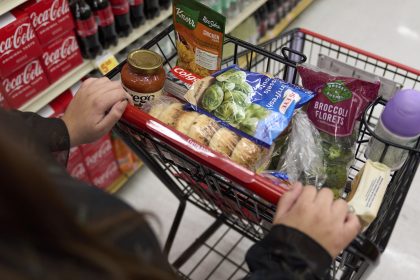Congress Seeks to Control the Harm of Climate Change on Food Production

WASHINGTON — Congress is searching for an innovative approach to rising food prices as climate change, political policy and farming increasingly collide, leaving consumers to suffer the consequences.
For some, it means a bigger part of their annual budgets will be spent to feed themselves and their families, according to agricultural and environmental experts who testified at a congressional hearing Friday. For others, it means hunger or malnutrition might be unavoidable.
Even conservatives who want to avoid sharp energy policy shifts acknowledge something needs to change fast.
“It’s a global environment, we’re headed in the wrong direction,” said Rep. Garret Graves, R-La., during the hearing of the House Select Committee on the Climate Crisis.
If the entire world cut emissions enough to avoid aggravating global warming, it could take as much as 75 years before the climate returns to normal levels, Graves said.
In the interim, droughts, high temperatures and wildfires that destroy cropland would continue to imperil the U.S. and world food supply.
About 38 million Americans report some degree of food insecurity, according to the U.S. Department of Agriculture. Twelve million of them are children.
U.S. policy so far has addressed each challenge to keeping Americans fed separately as it arose. The effort is led by the Agriculture Department.
In one example, the Agriculture Department assists farmers with “precision farming,” which refers to strategies and tools to optimize soil quality and productivity. It could include use of drones, data retrieved from satellites and computer apps to track soil and crop health.
The goal is to increase cropland efficiency enough to bring down food prices.
Congress tried last month to help families whose food insecurity was deepened by the COVID-19 pandemic. Lawmakers approved an extension of the pandemic-era universal school meal waivers.
Another government strategy seeks to avoid food waste.
The Agriculture Department’s Economic Research Service estimates 31% of the food produced in the United States is wasted at the retail and consumer levels, resulting in a loss of 133 billion pounds of food. The department is encouraging more efficient food storage and deliveries to grocery stores.
Rep. Kathy Castor, D-Fla., said food insecurity problems cannot be resolved without better management of the climate crisis. Castor is chairwoman of the Select Committee on the Climate Crisis.
“As we move closer to the net-zero emission economy, we have an opportunity to create a food system that works for Americans,” Castor said.
She was referring to President Joe Biden’s Dec. 8, 2021, executive order for the federal government to pursue policies to help the United States reach a goal of net-zero carbon emissions by 2050. It relies heavily on investments in clean energy industries and incentives for a switch to electric vehicles.
The agricultural industry produces as much as 30% of greenhouse gas emissions from crop and livestock production, the timber industry and land use.
Agricultural industry and environmental witnesses at the hearing discussed their strategies for food production and climate conservation as models the government could follow.
Dana Gunders, executive director of ReFED, a nonprofit organization that advocates for reducing food waste, blamed beef production as the major agricultural contributor to greenhouse gas emissions.
She suggested switching livestock to diets that produce the least methane and handling their manure in ways that avoid excessive emissions.
She also said new technological solutions to food waste are emerging from the agricultural industry.
Gunders told The Well News the United States should “make the best use of the food we’re already growing. When less food goes to waste, that naturally increases supply and makes things more affordable.”
Kent Swisher, president of the North American Renderers Association, suggested recycling more byproducts of animal slaughtering into fertilizer or fuel to improve the efficiency of the food system.
Rendering is a process to convert waste animal tissue into usable materials. Most of the tissue comes from slaughterhouses but also includes restaurant grease, butcher shop trimmings and expired meat from grocery stores.
The uphill struggle faced by Congress in controlling the agricultural harm created by global warming was accentuated Thursday, when Sen. Joe Manchin, D-W.Va., announced he would not support a Biden administration economic proposal with new spending on climate change.
Manchin’s decision means the proposal stands little chance of winning approval in the Senate. He said the Biden plan was too inflationary.
Tom can be reached at [email protected] and @TomRamstack























